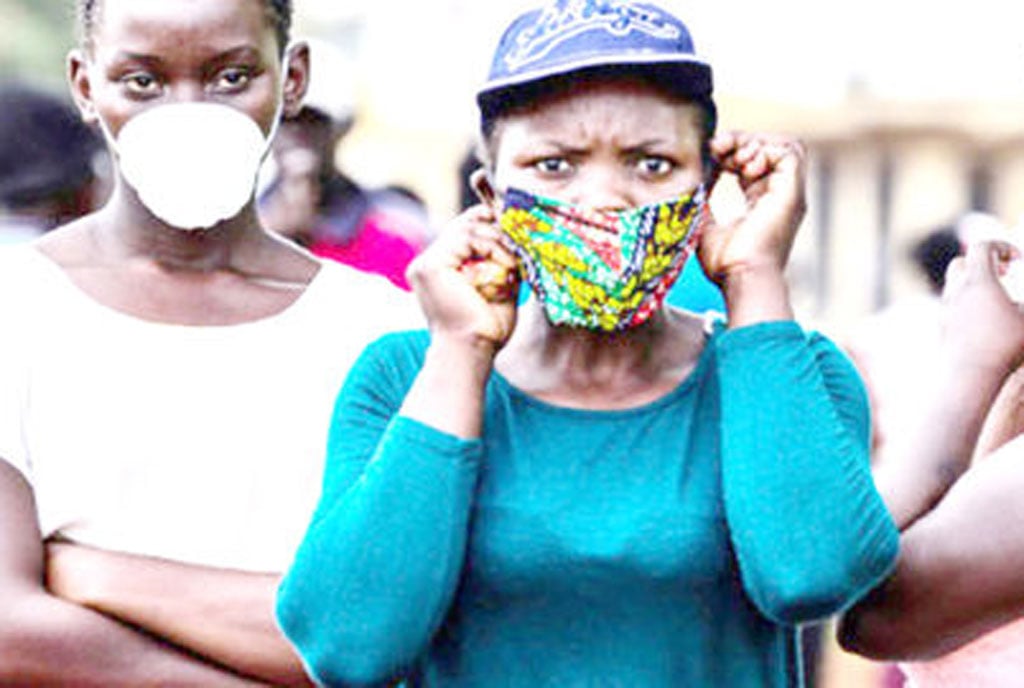Prime
Uganda investigates new Omicron mutation

Women wearing face masks to prevent the spread of Covid-19 in Kampala, Uganda. PHOTO/FILE
What you need to know:
- Besides vaccination, usual preventive measures such as handwashing, wearing a facemask and social distancing are effective in preventing infection and developing severe disease from the variants.
Ugandan scientists have intensified investigations following the emergence of new Omicron variants, BA.4 and BA.5, which are causing fresh spikes in Covid-19 infections in countries such as South Africa.
The new variants that have been reported by scientists in South Africa to be more infectious than the older versions of Omicron and are capable of escaping immune protection from previous infection or vaccination.
ALSO READ: How to treat Omicron at home
Prof Pontiano Kaleebu, the director of Uganda Virus Research Institute, and Dr Henry Kyobe, the Covid-19 incident commander at the Ministry of Health, told Daily Monitor in separate interviews that the pandemic is not yet over.
Prof Kaleebu said: “Colleagues are doing some work in the lab. Omicron, as you have heard, in South Africa they are seeing some other sub-lineages –the BA.4, the BA.5. So we need to do more [research here]. The work we did [earlier], we stopped at [detecting] Omicron BA.1, BA.2 [which have been driving infections in the country]”
“But because there have been low infections, even our work output has been low. Hopefully, in a week’s time, we shall give out some results. But for now, infections are down and hopefully, they will remain down. But we cannot relax,” he added.
A report by Houriiyah Tegally from the Centre for Epidemic Response and Innovation (CERI) at South Africa’s Stellenbosch University and other researchers, indicates that “BA.4 and BA.5 have rapidly replaced BA.2, reaching more than 50 percent of sequenced cases in South Africa from the first week of April 2022 onwards.”
“…we estimate growth advantages for BA.4 and BA.5 of 0.08 and 0.12 per day respectively over BA.2 in South Africa,” the report titled ‘Continued Emergence and Evolution of Omicron in South Africa: New BA.4 and BA.5 lineages’ reads in part.
The report, which has not yet been peer-reviewed, was published in the preprint scientific journal medrxiv.
On May 7, South Africa’s National Institute for Communicable Diseases (NICD), reported 8,524 new Covid-19 cases, which brought the total number of laboratory-confirmed cases in the country to 3,835,902.
“This increase represents a 31.1 percent positivity rate. Today, the National Department of Health (NDoH) reports 11 deaths and of these, 5 occurred in the past 24 – 48 hours. This brings the total fatalities to 100,516 to date,” the NICD report reads.
In Uganda on the other hand, the latest statistics shared by the Ministry of Health indicate that a total of 11 new cases were detected and the positivity rate was at 0.5 percent. No new death has been reported and there are two hospitalised Covid-19 patients.
Dr Kyobe said the country should vaccinate at least 70 percent of the population –children inclusive to effectively control the pandemic and minimise the impact of future resurgence.
“That emerging variant of Omicron has not been specifically detected here [in Uganda] but we can’t rule it out [that it is not here]. Still, we are having few cases of infections. We don’t think we are completely out of the pandemic,” he said.
Besides vaccination, usual preventive measures such as handwashing, wearing a facemask and social distancing are effective in preventing infection and developing severe disease from the variants.
The country has managed to administer 20.9m doses out of the 44.7m doses largely acquired through donations. Of this, 15.7m received at least their first dose, 5.1m are fully vaccinated while 65,835 have received their booster shots, according to May 2 statistics from the Ministry of Health.




